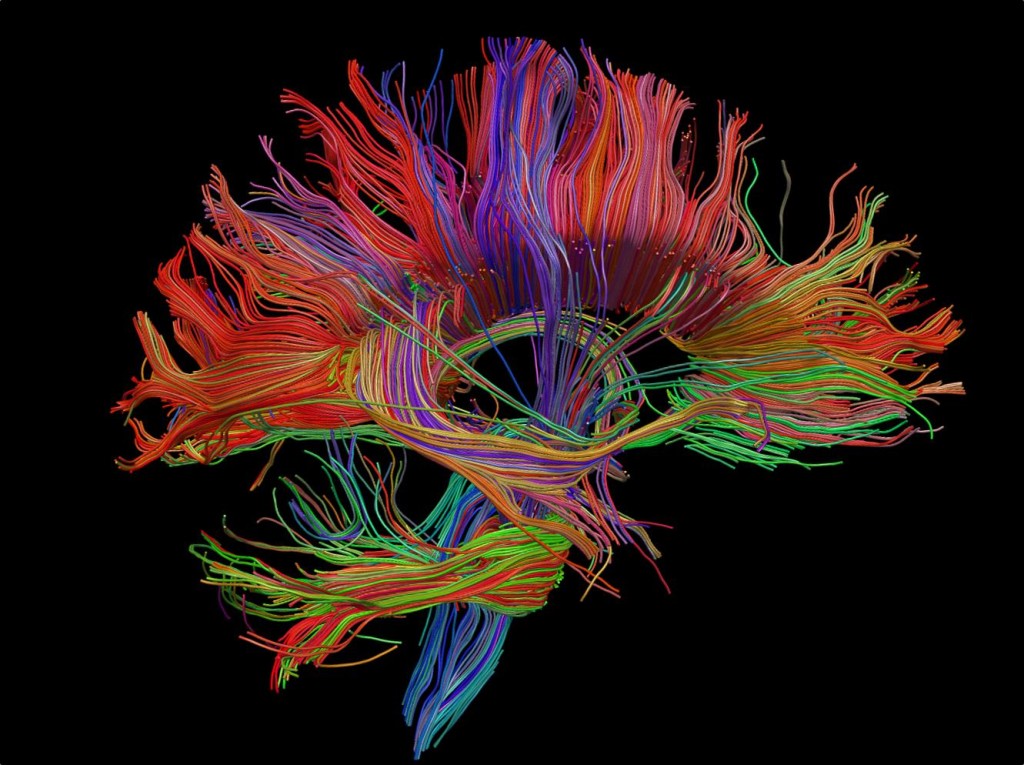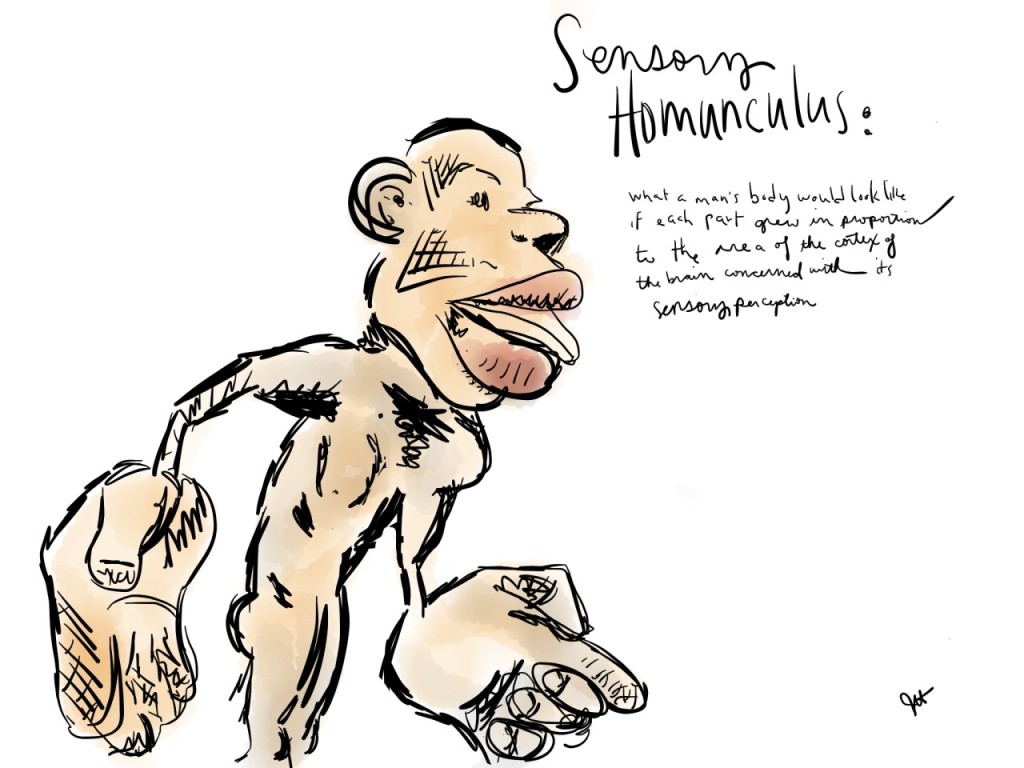(An adaptation of the Keynote given by Ane Marie Anderson at Knudepunkt, Denmark, 2015)
When we play larps, we create fictional universes where we stimulate ourselves – psychologically and physically – and we try to make the experiences we have within these universes feel real. To do this, we take on characters, and we use our bodies to convey our characters to our fellow players and to ourselves.
Taking on a character in a larp is a very conscious act, and through the history of larp we have developed and borrowed many techniques that we can consciously use to try to make our fictional realities more real to ourselves. But when we make the conscious decision to enter a larp, we bring our bodies with us, and our bodies are adapted to life. Even though we try hard, most of our physical selves don’t change when we larp, and we always carry subconscious and physical aspects of our real selves with us.
Can your body really be the body of someone else – your character?
In Nordic larp we like to imagine, discuss and chase the concept of “immersion”, even if the concept has lost some of its power during the recent years. The term has many definitions, but I personally favor thinking about immersion as losing yourself in the moment of the game, in a state of perfect flow where going through the motion feels natural and does not require player analysis, where you forget about steering, and just follow the flow of the game.
But what is really happening in those moments, when my mind is “in character”, but my own player-body is experiencing the things happening in the larp?
We aren’t robots, we can’t merely be programmed. There are many parts of our bodies that are completely outside of our conscious control. We as humans consist of so many things – our genetics, senses, experiences, memories. Those aspects sill always be there when playing, and it would be absolutely insane to believe that a workshop can take all that away.
I think it is pretty obvious that our subconscious selves play an important part when we experience games, and that our characters probably carry big parts of us within them. We can never be someone completely different – not really.
Experiencing the world through our senses, as characters and as ourselves
Our senses are our main tool when it comes to perceiving the world. We learn about smell, touch, taste, hearing and sight from an early age, and the function of our nervous system in conveying sensory impulses has been known for a long time.
But when it comes to the field of perceiving and understanding the world, our senses are not the only things in play.
We sense the world around us through our nerves and these impressions are processed in our brains, processes studied in neuroscience. But the ways we interpret sensory input, and the way people subjectively perceive things different in the same situations, are tied to cognitive psychology. And, because we are humans, we will question our own interpretations and ask questions like “why is the bird blue”, “why do I feel” and “what does it all mean”. Thus, our senses are also subject to philosophical scrutiny.
The human brain
The brain – our central nervous system – is where the information from our senses goes to be processed and turned into sensations we understand. With increasing mapping of different areas of the human brain, we know something about how different areas of the brain do different things, for how the occipital cortex processes sight, and how the temporal cortex has areas for smell and hearing. To make it more interesting, we also know that there are centers tied to emotion, like the amygdala, and decision making, like the prefrontal cortex. Further on, we know that all of these parts of our brains are interconnected through complex networks of neurons that communicate with each other. Just how they communicate and what it means is largely a mystery, but the connections are there to make us wonder: how do our senses influence the other processes of our minds?

Picture: http://www.humanconnectomeproject.org/about/, a project that aims to understand human neural connectivity.
It would be the understatement of the year to say that the human brain is very poorly understood, especially how the different functional areas impact each other. But how our minds work is a large field of research, and I think larp designers and players could benefit a lot from some of the knowledge that exists about how we work.
The sensation of touch
Physical contact is a very basic need in most humans. Between family and friends it is a way of indicating belonging and trust. Between romantic partners it is used to show affection, and also to enforce the bond between you (1). But the sensation of someone touching your arm or hand can have greater effects on us than we consciously register, and are far greater than “it’s nice to get a massage”.
When talking about touch in larp, it is useful to separate conscious touch where you touch someone to communicate something, and they register the act, from casual touch, where a hand is touching another hand or arm, without the conscious mind of the receiving party even noticing.

The sensory homunculus: how our brain sees our body based on how big the processing area for the different body parts are in our brain. Notice the large hands.
Touching makes us compliant.
Touch creates trust and changes the way we relate to others, and it makes us more compliant in all kinds of situations. (2)
In a restaurant setting, waitresses who were able to touch the customers hand when giving the bill would receive higher tips. In a classroom setting with student solving a task, students who are actively touched on the arm by their teacher are more likely to raise their hand and volunteer to speak in class later. In a medical setting, patients who were actively touched by their nurses the day before surgery had less stress, lower heart rates, and lower blood pressure than others. (In this setting the touch only affected the female patients positively, not surprisingly suggesting that this is more complex than just the touch itself.) (2)
In a different kind of experiment, people were asked to try to convey a series of emotions through touching another subject’s arm, while the rest of their bodies were separated. They found that we can convey several emotions through touch alone without seeing facial expressions or body language: anger, fear, disgust, love, gratitude and sympathy were the ones who stood out. (2)
Let’s manipulate our bodies with touching!
Knowing how touch affects our trust and compliance is useful in larp design. We already have several physical game mechanics like Ars Amandi, but the possibilities are greater, especially when it comes to manipulation of belonging, trust, and safety.
Banning touch in an active way is probably a good tool for creating distrust and alienation. Or the banning of touch can be used to make a contrast, like in the game “Bridge over troubled water”, a short game from the Larp Exchange Academy (3). In the game, the two players aren’t allowed to touch at all before the very end when they are allowed to dance.
In workshops, active use of safe touching of hands when discussing and preparing can probably strengthen game groups. In a debriefing setting, the same form of safe touch might help players reconnect, for example after games that handle hate, violence of oppressive and abusive structures.
The sense of smell
I think touch is easy to understand when it comes to how it affects us. That’s why I would also like to take a look at smell, which might not be as intuitive.
Smell is a great way of illustrating how powerful nature’s way of directing us is. It is really amazing. Not only is smell strongly connected to memory, it is also a sense that has been shown to induce permanent change in behavior – or learning, as it’s called. For example in sheep, the smell of the amniotic fluid on a new born (the water that comes out with the baby) is essential for the mother’s bonding to her lamb. (4)
Smell is most definitely connected to the way we form relationships to other people. It has for example been shown that men born without the sense of smell have fewer sexual partners through their lives than others, and that women who can’t smell are less secure about their partners when in relationships, emphasizing its role in intimacy. (5)
The notion that smell might have something to do with our relationships is probably also familiar to us in our own lives. The experience of missing a partner and enjoying the smell of a used t-shirt they might have left behind, for example.
Your chemistry with other people might be controlled by your secret desire to smell them
Odor appears to influence our perception of other people. Why? Because nature wants us to match us of with people nature thinks are appropriate for us (6).
If you take a group of people and collect their smelly t-shirts, and then present those smelly t-shirts to a different group of people, chances are that the people smelling the dirty shirts will prefer the odor of the t-shirts from owners who have specific differences in their tissue types – namely a certain part of their immune systems, HLA (7). Different HLA types will increase the probability of creating children who are better equipped against disease.
There have been done several smelling studies throughout the years, mainly on women smelling men’s t-shirts (8). However, one of the large studies I found which randomized gender (7). This study confirmed some of the gender specific findings from earlier studies, for example that women are more sensitive to body odor, and that they are better at distinguishing smell based on odor. However, it also showed that when it came to tissue type preference, the smeller’s rating of the t-shirt wearers was independent of gender (7).
Larping and smelling
If smell is a predictor of compatibility and chemistry between people, it’s not difficult to imagine that smell is a factor in who we want to play with, and who we play well with. That is because your body isn’t necessarily larping. It’s trying to think about your future prospects in life, and of your potential offspring.
Smell is just one of many, many hidden control mechanism nature has in place to help us make choices that are beneficial for us, and for our future children. And I believe, that this results in the fact that we will always play better with some, and not all, people.
I don’t think nature had larp in mind when it designed these mechanisms, but it does create an interesting question: how would a smelling workshop work as a casting tool? (Note: I was made aware that Delirium used smell in their casting. Effect-reports are welcome.)
Can our body really be the body of someone else – your character?
As larpers we create experiences that challenge us – mentally and physically – and our body is a passenger that comes along on the ride. We consciously imagine this thing of being “in character”. We use an array of mental and physical techniques to stimulate our bodies to make the transition into a character and to stimulate our bodies and our minds when we are playing. But there are some things we can’t control with our thoughts.
But, even though we aren’t able to control the way our subconscious mind interprets all of the stimuli that we are subject to in life and when we larp, there is still one thing we need to remember; Our senses are still direct highways right into what we need to cheat: our minds. That’s worth exploring.
—-
(Some) Litterature:
1: Touch increases autonomic coupling between romantic partners. Chatel-Goldman et al, 2014. (http://journal.frontiersin.org/article/10.3389/fnbeh.2014.00095/abstract)
2: The science of interpersonal touch: An overview. Gallace et Spence, 2010. (http://www.ncbi.nlm.nih.gov/pubmed/?term=The+science+of+interpersonal+touch%3A+An+overview)
3: The Larp Exchange Academy. http://www.larpacademy.org/
4: Smell impacting bonding between sheep and lamb. Wikipedia. http://en.wikipedia.org/wiki/Olfactory_imprinting_in_sheep
5: Men without a sense of smell exhibit a strongly reduced number of sexual relationships, women exhibit reduced partnership security – a reanalysis of previously published data. Croy et al, 2013. (http://www.ncbi.nlm.nih.gov/pubmed/?term=Men+without+a+sense+of+smell+exhibit+a+strongly+reduced+number+of+sexual+relationships%2C+women+exhibit+reduced+partnership+security+-+a+reanalysis+of+previously+published+data.)
6: Human pheromones and sexual attraction. Grammet et al, 2005. (http://www.ncbi.nlm.nih.gov/pubmed/15653193)
7: Body odour preferences in men and women: do they aim for specific MHC combinations or simply heterozygosity? Wedekind et Füri, 1997. (http://www.ncbi.nlm.nih.gov/pubmed/9364787)
8: Female perception of male body odor. Sergeant, 2010. (http://www.ncbi.nlm.nih.gov/pubmed/20831941)
Bonus:
9: Effects of odor on emotions, with implications. Kadohisa, 2013 (http://www.ncbi.nlm.nih.gov/pubmed/24124415)
10: Do ambient urban odors evoke basic emotions? Glass et al, 2014. (http://www.ncbi.nlm.nih.gov/pubmed/24860522)


Leave a Reply